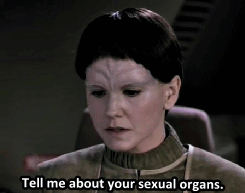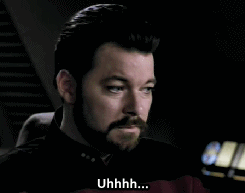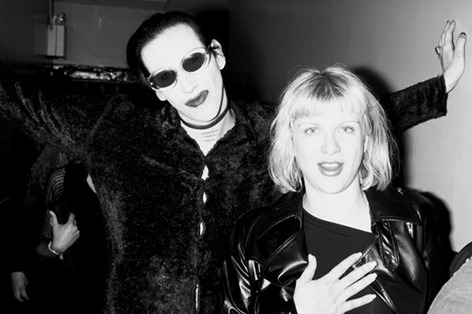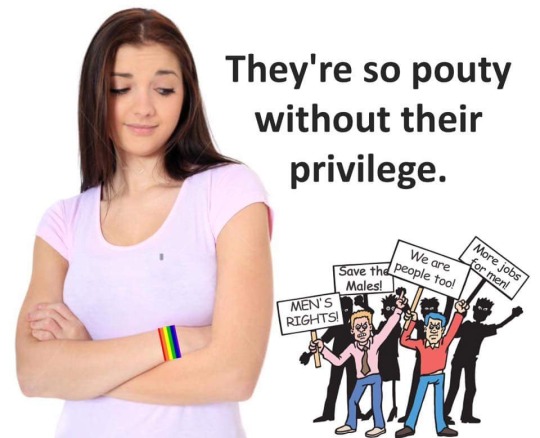Text
"In the end, Gray dissolves the boundary between religion and atheism to make a more consequential division: between those dangerous believers—Platonists, Christians, Gnostics, Marxists, New Atheists, scientific positivists, liberals, etc.—who think they have access to the one universal truth and the one true path to progress, and a more chastened company of diversely humble negative theologians, nihilists, aesthetes, Pragmatists, Stoics, Taoists, and more, who accept the limits to human knowledge and the plurality of human values and simply try to live the best they can within these bounds."
— John Pistelli's review (2021) of John N. Gray's Seven Types of Atheism (2018)
2 notes
·
View notes
Photo
from Of Boys and Men: Why the Modern Male Is Struggling, Why It Matters, and What to Do about It (2022) by Richard Reeves —
The mission of the American Psychological Association is to “benefit society and improve lives.” But the association failed against this benchmark with its 2018 guidelines on working with boys and men. […] As far as the APA is concerned, it seems, masculinity is entirely socially constructed. “By the time he reaches adulthood,” the report states, “a man will tend to demonstrate behaviors as prescribed by his ethnicity, culture, and different constructions of masculinity.” The complete absence of biology here contrasts with the association’s equivalent report on girls and women, which usefully discusses the potential psychological implications of puberty, childbirth, and menopause. So while girls and women are treated as flesh and blood, boys and men are treated as blank slates. This is obviously absurd. But it is also damaging, not least because of the poor guidance it provides to psychologists, 80% of whom are women, as they seek to help boys and men.
[…]
Of course, conservative arguments for the importance of biology in human behavior seem more reasonable when their opponents deny their existence altogether. It is hard to see how much someone is exaggerating the truth when their principal antagonists deny the truth altogether. This is one of the most unfortunate dynamics in the culture wars over sex and biology. The more fervently the Left denies any innate sex differences, the more strongly many on the Right feel the need to insist on their importance, and vice versa. The room for nuance becomes smaller.
[…]
The failure of both Left and Right to respond to the growing problems of boys and men has created a dangerous vacuum in our political life. In the centrifugal dynamic of culture-war politics, the more the Right goes to one extreme, the more the Left must go to the other, and vice versa. The Left dismisses biology, the Right leans too heavily on it. The Left see a war on girls and women; the Right see a war on boys and men. The Left pathologizes masculinity; the Right pathologizes feminism.
Meanwhile, far away from the frontlines of the culture war, the real-world problems of boys and men go largely unaddressed.
[…]
Wives are concerned that their husbands won’t find decent work. Mothers of teenage sons are forming informal support groups to help each other through the trying time of high school. Young women are frustrated by the rudderless men on the dating market.
I was especially surprised that even the staunchest feminists I spoke with seemed much more concerned about their sons than their daughters.




1K notes
·
View notes
Text
"Human beings use reason to bolster whatever they want to believe, seldom to find out if what they believe is true. This may be unfortunate, but there is nothing you or anyone else can do about it. If human unreason frustrates or endangers you, walk away. […] Science can advance human knowledge, it cannot make humanity cherish truth.”
— John N. Gray (2020/2002)
1 note
·
View note
Photo

The original Pledge of Allegiance did not include a reference to the "United States of America" or "under God.“ Those changes were made later by Congress.
Watch Constitution USA with Peter Sagal to learn more about religion, government and the the separation of church and state.
23 notes
·
View notes
Photo
"Like a mother shelters her child from the somewhat distant strictness of the father, a female diety supposedly would intrude for the pathetic sinners against the unremitting judgement of the Father.
It is interesting to realize that in many ways the Church saw Christ, as the Son, in exactly that role of introducing love and compassion. Yet, the people demanded a female. Even the idea of the Church as ‘Mother Church’ did not go far enough."
— Rachel Pollack, Seventy-Eight Degrees of Wisdom (1980/2019)
"By uniting himself with every human being through his Incarnation, Jesus Christ confirmed that each person possesses an immeasurable dignity simply by belonging to the human community; moreover, he affirmed that this dignity can never be lost. By proclaiming that the Kingdom of God belongs to the poor, the humble, the despised, and those who suffer in body and spirit; by healing all sorts of illnesses and infirmities, even the most dramatic ones, such as leprosy; by affirming that whatever is done to these individuals is also done to him because he is present in them: in all these ways, Jesus brought the great novelty of recognizing the dignity of every person, especially those who were considered “unworthy.” This new principle in human history—which emphasizes that individuals are even more “worthy” of our respect and love when they are weak, scorned, or suffering, even to the point of losing the human “figure”—has changed the face of the world. It has given life to institutions that take care of those who find themselves in disadvantaged conditions, such as abandoned infants, orphans, the elderly who are left without assistance, the mentally ill, people with incurable diseases or severe deformities, and those living on the streets.
[…]
First, while there has been a growing awareness of human dignity, many misunderstandings of the concept still distort its meaning. Some people propose that it is better to use the expression “personal dignity” (and the rights “of the person”) instead of “human dignity” (and the rights “of man”) since they understand a “person” to be only “one who is capable of reasoning.” They then argue that dignity and rights are deduced from the individual’s capacity for knowledge and freedom, which not all humans possess. Thus, according to them, the unborn child would not have personal dignity, nor would the older person who is dependent upon others, nor would an individual with mental disabilities. On the contrary, the Church insists that the dignity of every human person, precisely because it is intrinsic, remains “in all circumstances.” The recognition of this dignity cannot be contingent upon a judgment about the person’s ability to understand and act freely; otherwise, it would not be inherent in the person, independent of the individual’s situation, and thus deserving unconditional respect. Only by recognizing an intrinsic and inalienable dignity in every human being can we guarantee a secure and inviolable foundation for that quality. Without any ontological grounding, the recognition of human dignity would vacillate at the mercy of varying and arbitrary judgments.
[…]
One criterion for verifying whether real attention is given to the dignity of every individual in society is the help given to the most disadvantaged. Regrettably, our time is not known for such care; rather, a “throwaway culture” is increasingly imposing itself. To counter this trend, the condition of those experiencing physical or mental limitations warrants special attention and concern. Such conditions of acute vulnerability —which feature prominently in the Gospels—prompt universal questions about what it means to be a human person, especially starting from the condition of impairment or disability. The question of human imperfection also carries clear socio-cultural implications since some cultures tend to marginalize or even oppress individuals with disabilities, treating them as “rejects.” However, the truth is that each human being, regardless of their vulnerabilities, receives his or her dignity from the sole fact of being willed and loved by God. Thus, every effort should be made to encourage the inclusion and active participation of those who are affected by frailty or disability in the life of society and of the Church."
— The Catholic Church, Declaration “Dignitas Infinita” on Human Dignity (April 8 2024)
"BAP’s disdain for Christianity and the Enlightenment sets him apart from most other intellectuals of the right at the present time. The contrast with the much more widely known Jordan Peterson is telling. Like BAP, Peterson writes for those disenchanted with liberal culture and has attracted an audience of disoriented young men, but there the similarities end. The Canadian psychologist is a cultural conservative, who believes contemporary malaise comes from a rejection of Western traditions – notably the Christian religion. For BAP as for Nietzsche, however, it is this very tradition that must bear some of the responsibility for liberal decadence: by making the Son of God a victim, Christianity began a revaluation of archaic pagan values that reaches a culmination in present-day woke movements. In this regard, BAP is a deeper and more dangerous thinker than any would-be conservative."
— John N. Gray, Bronze Age Pervert will not save the American right (23 September 2023)

The Fool. Art by Sarah Shipman, from Our Tarot.
“Act, and God will act.” — Joan of Arc, heroine of France and saint
49 notes
·
View notes
Photo
"I, of course, consider this stance of radical nihilism not only totally at odds with my clear political engagements but also self-contradictory: it needs its fake-moral opponent to assert itself in its nihilistic destruction and in the unmasking of its hypocrisy. Therein resides the limit of all the desperate attempts to reverse tragedy into triumphant comedy practiced by Incels, Clowncels and Joker himself who, just before shooting Murray, his TV host, tells him: “Have you seen what it’s like out there, Murray? Do you ever actually leave the studio? Everybody just yells and screams at each other. Nobody’s civil anymore! Nobody thinks what it’s like to be the other guy. You think men like Thomas Wayne ever think what it’s like to be someone like me? To be somebody but themselves? They don’t. They think that we’ll just sit down and take it like good little boys! That we won’t werewolf and go wild!” The assertion of joyful destruction remains parasitic on this complaint. Joker doesn’t go “too far” in the destruction of the existing order, he remains stuck in what Hegel called “abstract negativity,” unable as he is to propose its concrete negation."
— Slavoj Žižek, Surplus-Enjoyment (2022)
"For Szasz, mental illness does not exist, but the associated behavior does. So-called psychiatric patients are people who avoid their responsibility, who make unjustified use of their sick role. Thus we find the following notable saying from this liberator of the mentally ill: “The facts are, that, in the main, so-called mad-men … are not so much disturbed as they are disturbing; it is not so much that they themselves suffer (although they may), but that they make others suffer." With this, Szasz not only distances himself from the vindicating effect of certain psychotherapeutic theories (the subject is himself responsible for his behavior and has to assume this responsibility), but goes a considerable step further (if they don’t assume their responsibility, they are “disturbing mad-men”).
[…]
it is not enough to scientifically choose sides and either blame or exonerate the patient. Given identity formation’s starting point, a certain failure and guilt will be implicit from the start in the relation between the subject and the Other.
Diagnostically and therapeutically, it is of enormous value to interrogate this dialectic so as to find out what the place and function of this sense of guilt are in a particular pathology, and how the treatment can work on them."
— Paul Verhaeghe, On Being Normal and Other Disorders: A Manual for Clinical Psychodiagnostics (2004)
"Rather than understand the human mind we will lock it away."
— Raykel | Twitch.tv (7:37 PM on 4/27/2024)
"In 1984, in an attempt to reduce stigma, psychiatrist Nancy Andreasen called mental illness a “broken brain.” Someone with a broken arm or leg wouldn’t think of staying away from a doctor, but someone with a serious mental illness does. Andreasen argued that prejudice and discrimination of people with mental illnesses derived from ignorance, “from a failure to realize that mental illness is a physical illness, an illness caused by biological forces and not by moral turpitude.”
Social scientists often call this desire to comprehend humanity in medical terms medicalization. Medicalization has its roots in the Enlightenment, in secularism, science, and the drive to make material those aspects of human experience—like the spirit, the mind, and the personality—that used to be immaterial.
[…]
In Germany, in 1990, a sample of mental health professionals and nonprofessionals ranked the causes of schizophrenia. Professionals ranked biological factors and genetics at the top, and ranked stress, broken homes, and lack of willpower at the bottom. Nonprofessionals listed the causes in the opposite way. In 2001, the authors repeated the survey and showed that public beliefs were moving closer to those of the professionals. But rather than decreasing stigma, nonprofessionals reported an increased desire for social distance from people with schizophrenia. Whereas in 1990 19 percent of the respondents said they would not want to live next door to someone with schizophrenia, in 2001 that percentage had risen to 35 percent. A brain-based model thus appeared to increase stigma.
Another study showed that from 1996 to 2006 the American public increasingly saw mental illnesses in general, and depression and schizophrenia in particular, as neurobiological. And the more neurobiological they saw the condition, the more they endorsed treatment for it. But, the authors wrote, “in no instance was a neurobiological conception associated with significantly lower odds of stigma.” Understanding the neurobiology of mental illness actually heightened the belief that people with schizophrenia and depression are dangerous and unpredictable."
— Roy Richard Grinker, Nobody’s Normal (2021), “An Illness Like Any Other?“

Arthur Fleck: The worst part about having a mental illness is people expect you to behave as if you don’t.
3 notes
·
View notes
Photo

Courtney Love and Marilyn Manson at the Radiohead’s show in NY, June 9, 1997.
Photo by Getty Images.
698 notes
·
View notes
Text
"Haley’s social media post also included photos of her and her children hugging her husband and holding a “Welcome Back Dad” sign.
Haley wished her husband farewell during a ceremony at The Citadel, a military college in Charleston, in June 2023. His deployment came during the height of her GOP presidential run before she dropped out of the race last month.
Michael Haley, her husband of 27 years, had been a familiar face on the campaign trail in Haley’s previous runs for political office. His absence on the campaign trail this year prompted former President Trump to mock Haley for not having her husband by her side — despite him being deployed."
1 note
·
View note
Text
"blend the two worlds, musically"
— Soul | "Finding Soul" Conversation | Essence Festival (2020)
After silence that which comes nearest to expressing the inexpressible is music.
Aldous Huxley
34 notes
·
View notes
Text
getting JOMO from using Tumblr til I see this new therapist
"The ways in which she is cynical and the things that she's scared of are really relatable, you know. And life is scary at times, life hurts, things can be painful, and everyone has moments of like, "Ugh, it's too much. I'd rather opt out."
I like the phrase JOMO, which is the opposite of FOMO. The Joy Of Missing Out. That's kind of where 22 is residing at the beginning. Lot of JOMO."
— Tina Fey on her character 22 in the Disney Pixar film Soul (2020), "Pretty Deep for a Cartoon" featurette

3 notes
·
View notes
Note
"I don't know if you realize this, but you are also just putting people into boxes that fit your political ideology.
You'll be happier if you stop looking at the world as if everything is right or left. Despite what people who profit from anger say, most things aren't political."
— Arnold Schwarzenegger post (21 Apr 2023) replying to "only woke and stupid leftists are raging about this blue check"
^ agree or disagree with former governor Schwarzenegger in the above but I am appending this to relax the grandhotelabyss post for my own blog.
are you a TERF
No. Picture the political spectrum as a circle. The TERF occupies a dot where a determinist version of the materialist left, according to which one's consciousness flows entirely from one's class (or in this case sex-class) position, meets the leftmost wing of a conservatism according to which it is too dangerous to destabilize supposedly long-settled social categories. Now picture a dot on the circle positioned 180 degrees from the TERF dot, where the postmodern (or whatever) left, with its conviction that discourse precedes and constructs (though never seamlessly) identity, meets the Nietzschean right, for whom identity is an aesthetic artifact crafted by the aristocratic personality. I occupy that dot, more or less. Opposites resemble each other, as we know, so people sometimes think I'm "gender critical" because I have expressed reservations about handing gender nonconformity entirely over to the doctors and the experts, as if one needed in every case the imprimatur of the lancet to transfigure one's self, and because I have scrutinized certain linguistic interventions, the "they/them" convention in particular and compulsory pronoun-sharing in general, on the grounds that they act in practice as bureaucratic reifications of the identity they promised to emancipate from absolute definition. I don't mean to say no one should seek gender medicine (this is America, not some half-fascist Nordic social democracy, so you should get whatever procedure you want and can afford) or that there are no politics to pronouns (I have in fact defended on aesthetic grounds neopronouns, the abolition of pronouns, and the deliberate rendering-illegible of "he" and "she" as alternatives to "they/them" with its unavoidable hint of a stable third sex)—just that the point of all this agitation, as I understood it in my youth, was to free up the complexity of the human psyche and its possible outward expression from the trammels of top-down socio-techno control. Which means, again, that my position is opposite the TERF one: some people have seen TERF ideology in the utterances of at least one character in my latest novel, and I don't see why one character out of many characters in a large fiction shouldn't articulate an ideology if that ideology is appropriate to her sensibility or context, but I invite you to consider two phrases used without irony in the objective third-person narration: "her penis," "the girl's penis." I've admittedly never read a J. K. Rowling novel, but I don't think you're going to find those phrases in one.
6 notes
·
View notes
Photo
"Don't turn off what turns me on"



Dua Lipa and St. Vincent onstage at the 61st annual GRAMMY Awards
799 notes
·
View notes
Text
"Why do Recessionist Millennials have so much anxiety??"
Our childhood/teen years: *Columbine massacre and then growing up hearing of it constantly, Y2K scare, Aaliyah's death from a plane crash (widely publicized), 9/11 (about 2 weeks after that), war in Iraq, war in Afghanistan, lots of disturbing horror movies (especially Final Destination movies), always being told about "Stranger Danger," Hurricane Katrina, financial collapse, other mass shootings, Mayan apocalypse scare...*
Do I need to go on?? 🙃

2 notes
·
View notes
Text
from "Austin Powers at 25: 10 Things You Didn’t Know About the Landmark 1990s Comedy" by Stephen Silver (2022) —
Austin Powers: International Man of Mystery was a big part of Cool Britannia
Cool Britannia was a cultural moment in the second half of the 1990s, coinciding with Tony Blair’s arrival as prime minister, in which British culture became cool around the world again. Austin Powers was a key part of this, as was Four Weddings and a Funeral, as were bands like Oasis and Blur, and of course the Spice Girls. Both Austin Powers and The Spice Girls heavily featured British flags in their iconography.
0 notes
Photo
Kelly LeBrock in Weird Science (1985)
"And it's a whole lot better than it got credit for. It's about overcoming who you are and needing something like a woman to step out of a computer and sort of show you how to live life."
— man
"The whole premise of the movie, where they're trying to create this perfect woman out of a computer and to specifications. This is really an Internet-era fantasy. Everyone's looking for the perfect porn site for them. And that's what these guys were doing. So, it really anticipates the Internet and the way that it would be used."
— man
"I remember being kind of disappointed that it wasn't just like softcore porn. Where she just shows up and is, you know, an object for them to entertain themselves with. It was like like 'aww there's a lesson in this' y'know."
— Diablo Cody
from "It's Alive! Resurrecting Weird Science" 2008 featurette

85 notes
·
View notes


